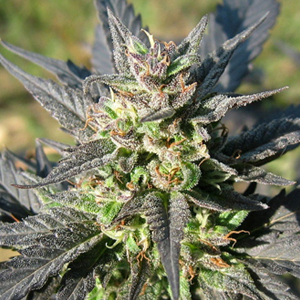Blog
What do you know about marijuana legalization?
About Marijuana Legalization:

Marijuana legalization has become one of the most debated topics of our time, not only in the United States but across the globe. The conversation revolves around the benefits, risks, and implications of legalizing cannabis for recreational and medicinal use. This article aims to shed light on various aspects of marijuana legalization, including its history, current status, health implications, economic impact, and social considerations.

Historical Context of Marijuana
The history of marijuana dates back thousands of years; it has been used as a medicinal, recreational, and industrial resource. However, the early 20th century witnessed a significant shift as negative stigmas and regulations emerged. The Marihuana Tax Act of 1937 effectively made cannabis illegal in the U.S., leading to decades of prohibition. But recent movements have prompted a reevaluation of cannabis laws.

Current Status of Legalization
As of October 2023, the landscape of marijuana legalization varies significantly across different regions. In the United States, over half of the states have legalized marijuana for recreational use, while others allow it for medicinal purposes only. Meanwhile, several countries, including Canada and Uruguay, have fully legalized cannabis at the national level. This growing acceptance signals a shift in public perception and policy.

Health Implications
The health implications of marijuana use are multifaceted and complex. Research indicates that while marijuana can offer therapeutic benefits for conditions such as chronic pain, epilepsy, and anxiety, it can also pose risks. Potential adverse effects include addiction, cognitive impairments, and mental health issues in susceptible individuals. Ongoing research is essential to fully understand both sides of the argument.

Economic Impact of Legalization
Marijuana legalization presents significant economic opportunities. States that have legalized cannabis have seen a surge in tax revenues from marijuana sales. These funds often go towards essential services like education, healthcare, and drug addiction programs. Moreover, the cannabis industry creates jobs in cultivation, retail, and ancillary services, contributing to local economies.

Social Considerations
Social justice is a critical aspect of the marijuana legalization discourse. The War on Drugs has had disproportionately negative impacts on marginalized communities, resulting in high incarceration rates for non-violent marijuana offenses. Legalization efforts are increasingly focusing on expunging records for those previously convicted and promoting equity in the emerging cannabis market.

Regulatory Framework for Legalization
Establishing a robust regulatory framework is essential for successful marijuana legalization. Lawmakers must consider various factors, including age restrictions, taxation, licensing for growers and sellers, public health regulations, and driving under the influence laws. An effective regulatory system can help mitigate risks associated with legalization.

Environmental Impacts
The environmental implications of marijuana cultivation also deserve attention. While cannabis can be grown sustainably, irresponsible farming practices can lead to water overuse, pesticide contamination, and habitat destruction. Advocates for legalization emphasize the need for environmentally friendly cultivation techniques and regulations to protect natural resources.

Future of Marijuana Legalization
The future of marijuana legalization is still unfolding. As more data becomes available, public perception continues to evolve. Advocacy groups stress the importance of continued research and open dialogue about the implications of cannabis use. Possible future trends include the exploration of cannabis derivatives, changing international policies, and further integration of marijuana into mainstream society.

Conclusion
In conclusion, marijuana legalization is a multifaceted issue with far-reaching implications. From historical context and health effects to economic benefits and social justice considerations, understanding the complexities of cannabis legalization is vital. As more jurisdictions evaluate their marijuana policies and as ongoing research continues to emerge, the conversation surrounding marijuana is likely to evolve further. For those interested in the movement toward legalization and its impacts, staying informed is crucial in navigating this dynamic landscape.
